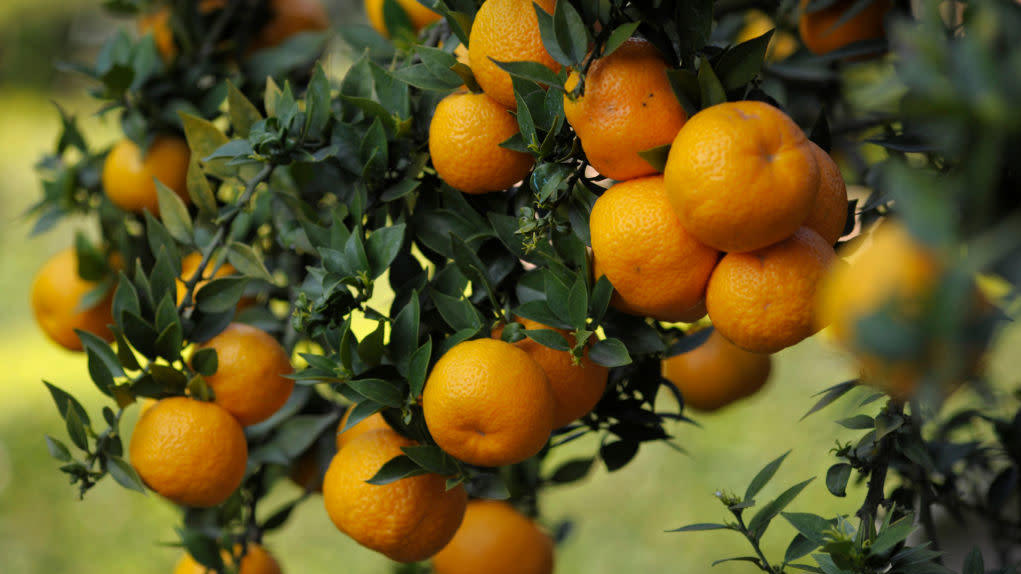This Spanish City Could Be Powered By Oranges—literally
Every spring, tourists flock to the Spanish city of Seville to take in the bright aroma of the city's famous orange trees. But all of that sweet-smelling citrus eventually becomes a nuisance when the fruit falls from those 50,000 orange trees. Now, Seville plans to use the excess fruit to generate enough clean energy to power thousands of homes.
EuroNews reports that Seville typically exports its oranges to Britain for marmalade, but the rest of the oranges tend to fall on the streets, creating a bit of a mess for locals. Now Seville's water utility company, Emasesa, is piloting a project that would use the fruit to generate clean energy. The energy could potentially power a water purification plant and, eventually, thousands of area buildings.
"Look, it's a very simple process: 50% of that orange is juice," Benigno Lopez, the head of Emasesa's environmental department, told EuroNews. "Through this juice, we generate a gas rich in methane that we use to produce energy. It is a very simple process. It does not require any type of additives, it is environmentally controlled and it closes the circular economy of urban waste, which also means that this facility contributes to mitigating climate change by self-sufficient energy."
The project's early findings suggest that one ton of oranges can produce up to 50 kilowatt-hours of electricity—or enough to power five homes for a full day. Emasesa reports that all of Seville's oranges could collectively power 73,000 homes, although that possibility may still be years away. Regardless, it's an impressive exercise in converting food waste into clean energy. Probably smells nice, too.
